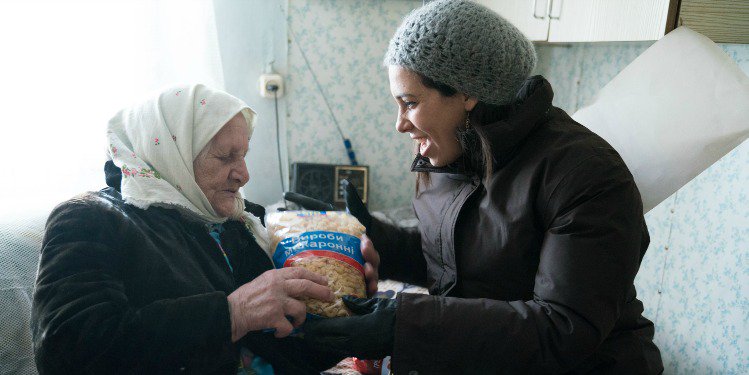What the Poor Man Has
Yael Eckstein | March 30, 2020

“Aaron and his sons shall eat the rest of it, but it is to be eaten without yeast in the sanctuary area; they are to eat it in the courtyard of the tent of meeting.”—Leviticus 6:16
Shalom, my friend. During these difficult times, we all need encouragement and inspiration. It is in that spirit that I will continue to share these devotions with you. The Fellowship continues to help people in need in Israel and around the world, as we continue to pray for you and your family.
Each week in synagogue, Jews read through the Torah from Genesis to Deuteronomy. This week, our Torah portion is Tzav, which means “command,” from Leviticus 6:1–8:36, and the Haftorah is from Jeremiah 7:21–8:3; 9:22–23.
Every year I go to the Ukraine in the middle of winter in order to deliver food and winter necessities to Jewish elderly Holocaust survivors who live on their own and who have no one else to care for them. Every year I go with the intention of bringing blessings, and without fail, I leave each time feeling like I was the one blessed. I give these needy Jews physical sustenance, but they raise me spiritually and fill my soul.
In this week’s Torah portion we learn about the Temple sacrifices. One category of sacrifices, the grain offering, was the offering the poor brought who could not afford to present a whole animal or bird to God. The offering was unleavened bread, also known as the “poor man’s bread.” It was flat and simple – a most humble offering.
Interestingly, the laws regarding these offerings indicate that they were especially holy. While most sacrifices could be consumed by anyone, only the holy priests were permitted to eat the grain offerings. Moreover, the offerings could only be eaten in the holiest part of the Temple. In fact, Jewish tradition teaches that these humble offerings were particularly holy and beloved by God because the poor are especially holy and beloved by God.
The Ba’al Shem Tov, a renowned Hasidic Master in the 18th century, used to say that he was envious of the poor. He explained that the rest of us are fooled by the illusions of our material possessions. We lack clarity about life, God, and our relationship to Him. But the poor experience a connection with God that the rabbi envied. Because the poor have nothing, they rely solely on God. As a result, they forge a deep relationship with God and enjoy an extra close connection.
We don’t have to be needy to have what the poor man has. When we recognize that everything we have and everything we are is because of God and we are dependent on His mercy, we deepen our connection to God.
And after all, a close relationship with our God is the greatest blessing of all.
Your turn
How would you describe your relationship with God? How can you make it deeper? Share your comments below.
